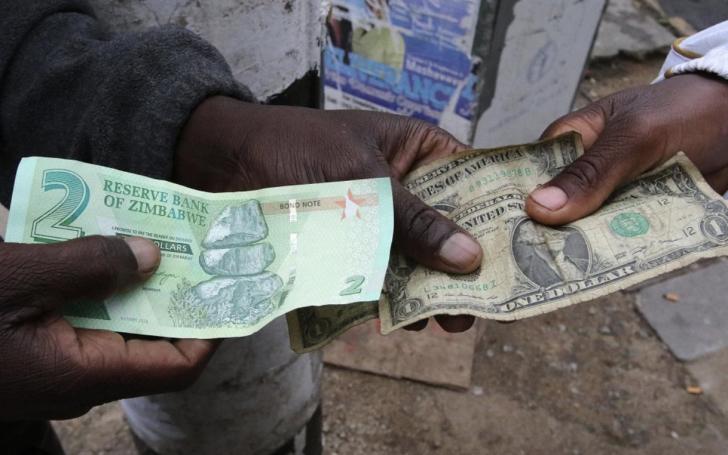The depreciation of the Zimbabwe dollar is partly due to illegal economic sanctions imposed on the country by Western countries, the African Development Bank (AfDB) said in its African Economic Outlook report released on Wednesday last week.
Zimbabwe has been reeling under sanctions since the turn of the new millennium and the economic embargoes have prevented the country from accessing concessional lines of credit from global financial institutions to support its balance of payment position.
Despite recording significant inflows of foreign currency from exports and diaspora remittances, these have not been adequate to defend Zimbabwe’s currency.
Foreign Direct Investment (FDI) flows, another major source of liquidity have also been low, declining to only 1 percent of the Gross Domestic Product currently from 25 percent in 1996.
Since the re-introduction of the Zimbabwe dollar, after a decade of a multi-currency regime generally referred to as dollarisation, the local unit has largely been unstable and has significantly lost its value to around $1 888 against the US dollar from $57,4/$US1 in June 2020 when the Government ended a fixed exchange rate of $25.
The Zimbabwean dollar alongside Ghana’s cedi and Sierra Leone’s leone were among Africa’s most devalued currencies against the United States dollar in 2022.
The rapid fall of the Zimbabwe dollar has resulted in price increases, notably, in recent weeks although there is also suspicion of economic sabotage by some businesses.
“The rapid fall in the value of the Zimbabwean dollar is due mainly to the effects of the economic sanctions imposed by the US and the European Union (EU) and prevailing global economic conditions,” said the AfDB report. Its president Dr Adesina was appointed by Zimbabwe to champion the country’s debt clearance strategy.While EU countries have softened their stance against Zimbabwe, the US’s Zimbabwe Economic Recovery and Democracy Act (ZIDERA) compels any US official seconded to a multilateral financial institution to veto any decision to extend financial credit to Zimbabwe.
Economic analyst Dr Langton Mabhanga said while Zimbabwe was performing well on various economic fronts, including foreign currency generation from exports and remittances from people living abroad, lack of additional liquidity in the form of lines of credit from multilateral financial institutions due to sanctions has seen the country failing to hold back the depreciation of the domestic currency.
“If you look at production, food security; food sufficiency around grain, the mining economy, all the arrows are pointing upwards, yet on the currency side, it is losing value. That defies logic (and) it can only be as a result of the illegal sanctions since we are unable to mobilise liquidity to support our currency,” Dr Mabhanga said.
Meanwhile, the Competition and Tariff Commission (CTC) and the National Competitiveness Commission (NCC) have implored the Treasury to properly fund the Reserve Bank of Zimbabwe (RBZ) to purchase export surrender, which it said appeared to be one of the major drivers of money supply growth.
In February this year, the central bank increased export retention to 75 percent across all sectors
In a joint study on the recent price increases, the CTC and the NCC said the surrender purchases must be done in a money “supply neutral manner.” “We recommend that the Ministry (of Finance and Economic Development) publish the amount that will be allocated to the Reserve Bank for this purpose and how this will be raised by the Ministry,” said the report.
“Government should carefully manage large payments to contractors to avoid surges in local currency liquidity.
The study also noted that the RBZ must monitor all sources of money supply growth to contain exchange rate movements while urging the Government to carefully manage large payments to contractors to avoid surges in local currency liquidity.
Source: bulawayo24
In other news- UK to invade Zimbabwe for teachers
Foreign teachers will be offered £10,000 to work in English schools amid chronic staffing shortages, according to a report.
Ministers have begun an overseas recruitment drive following a rise in vacancies, The Times reports. Learn more
